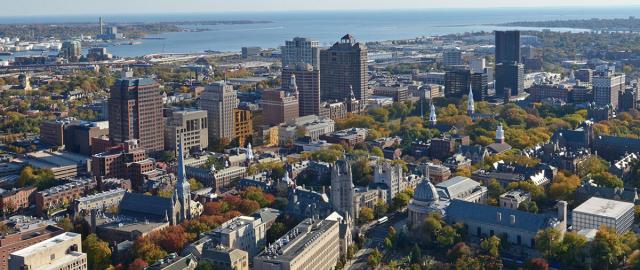Forging University-Municipality Partnerships Toward Urban Sustainability
About the Conference
The conference was co-convened by Yale Hixon Center for Urban Ecology, Yale Office of Sustainability, and the City of New Haven. The goal of the conference was to inspire progress by sharing successful examples of university-municipality collaboration on sustainability efforts. Three sessions were organized around individual thematic panels, each of which included four cities with paired speakers representing universities and municipalities describing a collaborative project. The event attracted an audience of students, faculty, community members, and sustainability professionals.
Location: Burke Auditorium, Kroon Hall, 195 Prospect Street, New Haven, CT 06511. This event was open to the public.
The conference’s thematic panels with speakers representing universities and municipalities include:
Leading in Partnership with New Haven Mayor Harp, Yale University President Salovey, Madison Mayor Soglin, and University of Wisconsin Vice Chancellor Hoslet
Transportation (Mass Transit and Bicycling) with Madison, Davis, Providence, and Minneapolis
Stormwater and Resilience with Cambridge, Pittsburgh, Birmingham, and Baltimore
Climate Action with South Bend, Vancouver, Boulder, and Ann Arbor
Speaker Information
Dr. Burke is an ecosystem ecologist whose research has focused on carbon and nitrogen cycling in dryland ecosystems. She received her B.S. in Biology from Middlebury College and her Ph.D. in Botany from the University of Wyoming, and has taught at Colorado State University and the University of Wyoming. Her work with graduate students, postdoctoral associates, and colleagues has addressed how drylands are influenced by land use management, climatic variability, and regional variability. She teaches in the fields of environmental science, ecosystem ecology, and biogeochemistry. She has received over $20m in grant support for research, and published over 150 peer-reviewed articles, chapters, books, and reports. Burke has served as a member of several National Research Council (NRC) committees to review national environmental research programs and policies, as a member of the NRC Board on Environmental Studies and Toxicology, on the national Environmental Protection Agency (EPA) Science Advisory Board, and as a member of numerous National Science Foundation, NASA, EPA, and other advisory panels. She has served on editorial boards for a number of nationally ranked scientific journals. A respected educator and intellectual leader in the U.S. and internationally, Dean Burke is particularly interested in fostering interdisciplinary scholarship. She came to YSE in 2016 from the University of Wyoming, where she was the dean of the Haub School of Environment and Natural Resources, one of the leading institutions in the western U.S. for research, teaching, and outreach on natural resource issues.

Speaker Information
An abiding commitment to social justice steers New Haven Mayor Toni Harp’s career in public service. Her drive for inclusiveness, equality, and integrity is the byproduct of resonant, across-the-board life experiences.
Toni was raised in Salt Lake City, the youngest of six children. Both parents worked to support the household; Toni’s tireless work ethic is a function of lessons learned from her parents.
In the 1960s, Toni moved to the south side of Chicago to attend Roosevelt University. After she earned a degree in English she began working for the American Society of Planning Officials, launching a lifelong interest in urban planning and how cities work. From there, Toni was recruited to study at Yale’s School of Architecture where she earned a Master’s degree.
Toni’s public service in elected office began first as a member of New Haven’s Board of Aldermen, and then for 21 years as state Senator for Connecticut’s 10th District. Toni is now the first woman ever to serve as Mayor of New Haven; she is presently serving her second term.
Throughout her distinguished career, Toni’s policy priorities have never changed:
—Full access to affordable healthcare, regardless of ethnic, cultural, or economic differences.
—A responsive and effective public safety network working hand-in-hand with an equitable criminal justice system.
—Maximizing opportunity for each individual student through public education, with particular emphasis on early childhood learning and development of reading skills.
—Job creation and economic development so city residents can enjoy the rewards and responsibilities of productive engagement, and so a vibrant city can provide necessary services without putting an excessive burden on taxpayers.
Toni Harp has lived in New Haven for more than 40 years and was the Homeless Service Director at the Cornell Scott Hill Health Center for more than 20 years. She is the proud mother of three grown and accomplished children—Djana, Jamil, and Matthew.

Speaker Information
Peter Salovey is the 23rd president of Yale University and the Chris Argyris Professor of Psychology. His presidential term began in July 2013. After receiving an A.B. (psychology) and A.M. (sociology) from Stanford University in 1980 with departmental honors and university distinction, Salovey earned three degrees at Yale in psychology: an M.S. (1983), M.Phil. (1984), and Ph.D. (1986). Since joining the Yale faculty in 1986, he has studied the connection between human emotion and health behavior, and played key roles in multiple Yale programs.
Prior to becoming president, Salovey served as the provost of Yale University from 2008 to 2013. As provost, Salovey facilitated strategic planning and initiatives, such as enhancing career development and mentoring opportunities for all Yale faculty members, promoting faculty diversity, creating the Office of Academic Integrity, establishing the University-wide Committee on Sexual Misconduct, developing the West Campus, and overseeing the university’s budget during the global financial crisis.
He is the only Yale president to have served as dean of the Graduate School of Arts and Sciences (2003–2004), dean of Yale College (2004–2008), and provost. Salovey has authored or edited over a dozen books translated into eleven languages and published hundreds of journal articles and essays, focused primarily on human emotion and health behavior. With John D. Mayer, he developed a broad framework called “Emotional Intelligence,” the theory that just as people have a wide range of intellectual abilities, they also have a wide range of measurable emotional skills that profoundly affect their thinking and action.
In addition to teaching and mentoring scores of graduate students, Salovey has won both the William Clyde DeVane Medal for Distinguished Scholarship and Teaching in Yale College and the Lex Hixon ’63 Prize for Teaching Excellence in the Social Sciences. He has received honorary degrees from the University of Pretoria (2009), Shanghai Jiao Tong University (2014), National Tsing Hua University (2014), and Harvard University (2015). He was elected to the American Academy of Arts and Sciences and to the National Academy of Medicine in 2013.
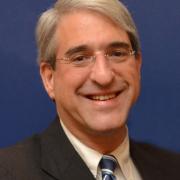
Speaker Information
Mayor Paul Soglin is the 51st, 54th and 57th Mayor of Madison, elected for tenures in 1973, again in 1989, and 2011. He is now serving in his 20th year.
Mayor Soglin was raised in the Hyde Park neighborhood of Chicago, received a BA with honors in history in 1966 and a Doctor of Jurisprudence degrees from the University of Wisconsin. Following his first tenure, Soglin was a fellow at the Kennedy School of Government, Harvard University.
Whether it was the Lake Monona bicycle path, or the Monona Terrace and Community Convention Center, or neighborhood centers and community gardens, the focus is on equity and a tax base that can support human services.
His tenure is noted for a major commitment to public transit with record setting ridership level, the design and construction of the State Street Mall resulting in one of the strongest downtown locally owned retail sectors, and the development of Madison's Civic Center, which evolved into the Overture Center for the Arts.
Mayor Soglin focuses on developing a better sense of place for Madison neighborhoods, denser and better designed projects that maximize the utilization of infrastructure. Priorities include measuring city projects against the finest standards for livability, equity, and sustainability, and ensuring that all basic needs are within walking distance of every neighborhood.
Madison is committed to creating a food accessible community, building public markets, and food hubs, eliminating the critical racial and ethnic disparity in educational achievement, income, and incarceration. Since returning to office in 2011, while the Madison region is 9% of Wisconsin’s population, it accounts for the creation of 53% of all new jobs
Mayor Soglin currently serves on US Conference of Mayors: Transportation and Communications Committee, Vice Chair for City Livability/Bicycling, the Advisory Board, is the chairman of the Task Force on Food Policy and serves on the Project for Public Spaces Placemaking Leadership Council.
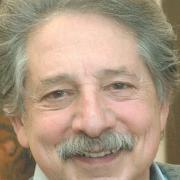
Speaker Information
Charles Hoslet serves as Vice Chancellor for University Relations at the University of Wisconsin–Madison. He is responsible for leading university efforts related to communications, marketing and brand strategy as well as interactions with key stakeholders including federal, state and local government leaders, community organizations, business and industry, and visitors to campus. Hoslet currently serves on the Board of Directors for the Greater Madison Convention and Visitors Bureau and the Advisory Board of Competitive Wisconsin Inc., and has served previously on Advisory Boards for University Research Park, the Center for International Business, Education and Research, and the Wisconsin Technology Council among other organizations.
From 2013 – 2016, Hoslet served as Associate Vice Chancellor for Government and Corporate Affairs, overseeing the development of the university’s federal relations presence in Washington, D.C., the creation of the South Madison Partnership Office, and Chancellor Blank’s outreach trips around the state, among other initiatives.
From 2003–13 Hoslet founded and served as Managing Director of the UW–Madison Office of Corporate Relations, which is responsible for promoting company growth and economic development by facilitating relationships between companies, organizations and entrepreneurs and university faculty, staff and units in areas such as student recruitment, research expertise and technology transfer.
From 1997–2003 Hoslet was responsible for directing all state governmental relations efforts for the university, including representing the university before the governor’s office, state legislature and other state agencies. Prior to his appointment at the UW–Madison Hoslet served as the Executive Assistant at the Wisconsin Department of Veterans Affairs, and began his career in state government in the Office of the Governor, including serving as both Deputy Legal Counsel and Chief Legal Counsel to the Governor of Wisconsin.
Hoslet, a native of Green Bay, Wisconsin, received his law degree from the University of Wisconsin and his undergraduate degree from Marquette University in Milwaukee.
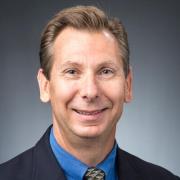
Speaker Information
Dr. Burke is an ecosystem ecologist whose research has focused on carbon and nitrogen cycling in dryland ecosystems. She received her B.S. in Biology from Middlebury College and her Ph.D. in Botany from the University of Wyoming, and has taught at Colorado State University and the University of Wyoming. Her work with graduate students, postdoctoral associates, and colleagues has addressed how drylands are influenced by land use management, climatic variability, and regional variability. She teaches in the fields of environmental science, ecosystem ecology, and biogeochemistry. She has received over $20m in grant support for research, and published over 150 peer-reviewed articles, chapters, books, and reports. Burke has served as a member of several National Research Council (NRC) committees to review national environmental research programs and policies, as a member of the NRC Board on Environmental Studies and Toxicology, on the national Environmental Protection Agency (EPA) Science Advisory Board, and as a member of numerous National Science Foundation, NASA, EPA, and other advisory panels. She has served on editorial boards for a number of nationally ranked scientific journals. A respected educator and intellectual leader in the U.S. and internationally, Dean Burke is particularly interested in fostering interdisciplinary scholarship. She came to YSE in 2016 from the University of Wyoming, where she was the dean of the Haub School of Environment and Natural Resources, one of the leading institutions in the western U.S. for research, teaching, and outreach on natural resource issues.

Abstract
The Metro Transit system in Madison, Wisconsin, the state capital, and the University of Wisconsin-Madison, the state’s flagship university, have been cooperating on numerous transit-related projects and services over the past several decades, and are continuing into the future. A hallmark of that cooperation is the service agreement between the two for transit services (bus and paratransit) that serve the campus 365 days a year, known as the Route 80’s. City and university staff will talk about how that arrangement evolved, why it makes sense to encourage transit rather than automobile use, and briefly what those services might look like in the future. Specific points that will be discussed include the unique geography of Madison and limited parking on campus; transportation history of Madison (no interstates through the isthmus); Route 80’s (map, # of buses, headways, paratransit); service agreement, costs, ridership, free bus pass program, other Metro Transit that also service campus and a potential Madison bus rapid transit system in future.
Speaker Information
Rob Kennedy is the Senior Transportation Planner for the University of Wisconsin-Madison, responsible for many campus/City relations. During the 1990s he was the principal lobbyist, policy analyst, and representative for the state-wide environmental organizations in Wisconsin on transportation issues, supporting funding for local transit and other TDM options. Former long-time chair of Madison’s transportation commission, he has also been a member of the local MPO and more than a dozen other local and Wisconsin transportation and land use planning and policy committees. He is a member of the Transportation Research Board and has written on clean air and transportation.

Speaker Information
Chuck Kamp has worked for 36 years in public transportation after completing a masters degree in public policy at the University of Michigan. His transit career started at the Washington Metropolitan Area Transit Authority as an intern, and later he worked in several management positions in operations and budgeting. He worked from 1991-2006 in Appleton, Wisconsin as the General Manager overseeing bus operations and planning activities, expanding the regional service to 10 municipalities in 3 counties. Since October 2006, he has served as General Manager of Metro Transit in Madison, Wisconsin.
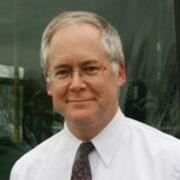
Abstract
An "urban island" community in the middle of the Sacramento Valley, the City of Davis and University of California, Davis community have a long history of sustainable ideals and collaboration. While the combined community has asserted leadership in sustainable housing and energy conservation, it is best known for transportation sustainability, where in the 1960s, the City installed the nation's first bike lane while simultanously, the University closed the campus core, dedicating it to bicycling and walking. Currently, both entities hold the highest Platinum-level certification by the League of American Bicyclists. More broadly, the community uses alternative transportation at rates far above regional, state, and national averages. A significant contribution to this is Unitrans, the almost entirely student-run shared transit system between UC Davis and the City of Davis, providing nearly 4 million rides per year and is the focus of our presentation. This mutually beneficial partnership has improved community transportation system efficiency by reducing automobile dependency, congestion, and vehicle emissions. Future opportunities for collaboration look bright, with several initiatives in progress or in the pipeline.
Speaker Information
Jeff Flynn recently returned to UC Davis to serve as Unitrans' General Manager. Jeff started his career in transit in 2001 as a student bus driver at Unitrans while studying at UC Davis and gradually worked his way to serve as the student manager in charge of planning, marketing, customer service, and administration prior to graduating. Over the last 12 years, Jeff has continued in transit with positions including Planning and Communications Director at a small, suburban transit agency east of San Francisco and most recently serving as the Chief Transit Officer for the San Francisco Municipal Transportation Agency, one of America's 10 largest transit agencies, overseeing all bus, light rail, and historic streetcar operations.
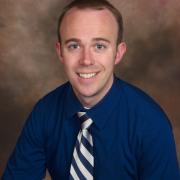
Speaker Information
Brian Abbanat is a Senior Transportation Planner with the City of Davis Public Works Department. He has over 15 years of experience in land use and transportation planning and supervises the City's Bicycle and Pedestrian Program. Brian holds a Master's Degree in Transportation Technology & Policy from the UC Davis Institute of Transportation Studies and a Bachelor's Degree in Geography from California State University, Chico.

Abstract
This discussion will focus on the processes and municipal-university relationships that spurred Providence's Downtown Transit Connector project, planned bike-share system, and other transportation-related investments shaping the future of Providence, Rhode Island. The panelists will discuss the transportation challenges of thousands of university students, faculty and staff moving into downtown in the last decade, and the constraints of working within a dense historic city with old infrastructure with new opportunities emerging from the recent relocation of Interstate 195 in the heart of downtown.
Speaker Information
Al Dahlberg is Assistant Vice President for Government and Community Relations at Brown University, where he has worked for ten years. He oversees Brown's external relations at the federal, state, city and community levels. Previously, he worked in Rhode Island state government, ran a successful statewide political campaign, was a counsel on the US Senate Environment and Public Works Committee for Sen. John Chafee and worked at the US EPA Office of Air. He graduated from Georgetown University and Boston College Law School, practicing law in Rhode Island after graduation. He is a leading promoter of electric vehicles in Rhode Island and serves on various commissions in the state working on GHG emission reductions.
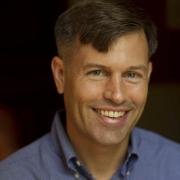
Speaker Information
Martina Haggerty serves as Special Projects Director at the City of Providence Department of Planning and Development where she oversees planning, redevelopment, and transportation projects and policy initiatives. She is a passionate advocate for walkable urbanism, inclusive planning processes, and innovative transportation solutions. From 2009-2015, Ms. Haggerty served as a Principal Planner for the City of Providence and prior to that as an urban designer in the private sector. She holds a Master of Science degree in Architecture and Urban Design from Pratt Institute and a Bachelor of Architecture degree from Roger Williams University.
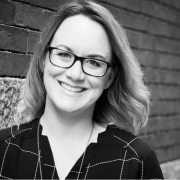
Abstract
Since 1994 the University of Minnesota and City of Minneapolis have attempted to secure funding to complete the Dinkytown Greenway, a crucial gap in the Twin Cities regional bikeway network bordering the University campus. The project was funded twice in regional transportation solicitations, but the funding had to be returned both times due to the intransigence of railroad authorities. Finally, in 2009, after a third successful funding request and third rebuff by the railroad, the University and City pursued a redesign of the project that required local, state, federal and University approval to proceed. Hear how the University and City, working together on this and other projects, have improved bicycling transportation infrastructure in Minneapolis.
Speaker Information
Steve Sanders has served as the Alternative Transportation Manager at the University of Minnesota since 1996. During that time the University has been recognized as both a Platinum-level Bicycle Friendly University and Bicycle Friendly Business. He has served on the Minneapolis Bicycle and Pedestrian Advisory Committees and for 10 years was the higher education representative on the Minnesota State Non-motorized Transportation Committee. He is a year-round bicycle commuter and League of American Bicyclists certified safety instructor.

Speaker Information
Simon Blenski has worked with the City of Minneapolis Public Works Department since 2009. Starting in the Traffic and Parking Division, he managed dozens of bike lane, protected bike lane, and bicycle safety projects, and also developed the City’s pedestrian and bicycle traffic count program. Simon is currently serving as a planner in the Transportation Planning and Programming Division, continuing to work on bikeway projects in addition to street reconstruction projects and longer-term transportation planning efforts. Simon has enjoyed getting around almost entirely by walking, biking, and transit since moving to Minneapolis in 2004 and has a B.S. in Urban Studies and a Masters in Urban and Regional Planning, both from the University of Minnesota, Twin Cities.
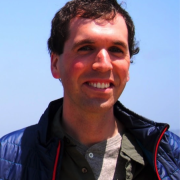
Speaker Information
Doug Hausladen serves as the Director of the Transportation, Traffic & Parking Department for the City of New Haven and the Acting Executive Director for the New Haven Parking Authority. He graduated from Yale University in 2004 with a degree in Molecular Biophysics & Biochemistry. Mr. Hausladen comes to the public sector from a transportation advocacy and activism background with professional experiences in real estate management, entrepreneurship, and public health. He was twice-elected to the Board of Alders in New Haven representing the 7th Ward encompassing the Downtown, Dwight, Wooster Square, and East Rock neighborhoods. Mayor Toni Harp then appointed him for a four-year term to his current position beginning on February 1st, 2014 and asked him to lead the New Haven Parking Authority in August of 2015. In his present role he is a leader in New England in Complete Streets, Smart Parking, Mobile Payment, Active Transportation, and Sustainability. Mr. Hausladen was born and raised on the Kentucky side of Cincinnati, OH and is the head coach of the Yale club water polo program.
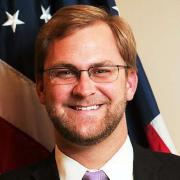
Speaker Information
Brian Goldberg joined MIT’s Office of Sustainability as a project manager in 2016 to advance climate, stormwater, land and materials management portfolios. He brings 15 years of experience working with cities and communities to optimize environmental and social benefits while mitigating risks. Brian’s perspectives are drawn from urban and rural projects in the U.S., Africa, Asia, Australia and the Caribbean. He comes to MIT after a decade at the global engineering, planning and design firm AECOM (formerly EDAW), along with prior work for the United Nations and James Corner Field Operations. Brian earned a Master of Environmental Management from Yale University where he served as a Hixon Student Research Fellow and a B.A. from Union College.
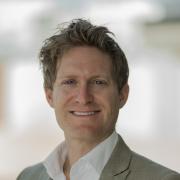
Speaker Information
John Bolduc is an environmental planner with the City of Cambridge Community Development Department where he coordinates climate change initiatives. Currently, John is the project manager for the Cambridge Climate Change Vulnerability Assessment and Preparedness Plan project; works with the Climate Protection Action Committee, an advisory group to the City Manager, to develop recommendations for new policies and actions; manages the City’s Building Energy Use Disclosure Ordinance; and participates in a range of municipal sustainability efforts. John has been with the City of Cambridge since 1997 and has 30 years of experience in municipal environmental protection. He earned a Bachelor of Science degree from the University of California at Davis in 1980 and a Master of Arts from Tufts University in Urban and Environmental Policy in 1986.
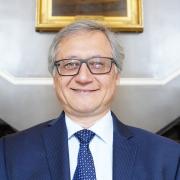
Abstract
The City of Birmingham discovered a major problem involving city stormwater inlet tops. Inlet tops are frequently damaged throughout the city and in constant need of replacing. More than 1,000 concrete inlet tops are manufactured and replaced annually by the City Department of Public Works, at an estimated cost of nearly $600,000 per year. Due to the cost burden for replacement, many inlets are not repaired for an extended period of time. Continuous disrepair of inlet tops does not allow stormwater to flow properly, which results in street flooding and standing water. Drains without proper covering are a public safety concern that is hazardous to communities and can contribute to neighborhood neglect. In response to this problem, The City of Birmingham Storm Water Department made the decision to partner with University of Alabama at Birmingham (UAB) in an innovative, state of the art pilot project to redesign and produce inlet tops that are more sustainable and less costly. The result of this project will improve drainage and enhance public and worker safety. Long term outcomes of this project will result in the reduction of operations management costs for the city and the potential to develop this concept into an incubator business opportunity and jobs for the City of Birmingham. The panelists will discuss the initial relationship and current status of their partnership, expected results from the pilot and long-term plans for continued collaboration efforts.
Speaker Information
Dr. Pillay serves as the Director of the Materials Processing and Applications Development (MPAD) Center, a 30,000 square foot facility, specializing in advanced materials research, manufacturing and product development. He also serves as the Director of the School of Engineering Design Laboratory, a design, manufacturing and prototyping facility with subtractive and additive manufacturing facilities. He has over 10 years of design and manufacturing experience in industry and over 15 years of teaching and research experience. He serves on the ACMA recycling committee and has focused research efforts on recycling of composite materials, sustainable materials development, sustainable manufacturing and product development. The focus of his efforts is to develop programs on recycling and sustainable materials and manufacturing that make business sense.
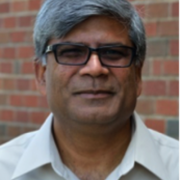
Speaker Information
Mr. Direcus Cooper is the Storm Water Specialist for the City of Birmingham’s Planning, Urban Design, and Watershed Management Division. In that capacity, he is responsible for the development and execution of the stormwater education and water quality programs. He also assists with the delivery of development services, capital improvement programming services, watershed planning services, and public outreach activities related to the protection of the City’s five principal watershed basins. Mr. Cooper started his career as an environmental scientist intern with the Tennessee Valley Authority. Prior to his current position with the City of Birmingham, he served as Co-Op Environmental Engineer with SCA Americas. Mr. Cooper holds an A.S. in Environmental Science from Shoals Community College, a B.S. in Environmental Engineering from Auburn University, and an M.S. in Occupational Health and Safety/Environmental Management from Columbia Southern University. He is presently working on a second M.S. in Sustainable Smart Cities, a dual program between the University of Alabama at Birmingham and Staffordshire University, UK.
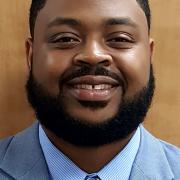
Abstract
The City of Baltimore and the University of Baltimore / Baltimore Neighborhood Indicators Alliance – Jacob France Institute (BNIA) have worked together for over a decade to analyze large data sets and provide reliable and actionable quality of life indicators in a visual format at the community level, known as Vital Signs. In 2014, the City aimed to capitalize on the strengths of this existing platform and initiate an on-line interactive resource tool to support the Green Pattern Book, a guidance document to assist communities in “greening” vacant land, including the installation of stormwater management practices. Both the book and mapping tool were developed as part of the Baltimore Urban Waters Federal Partnership, to provide incentives for public-private efforts to improve water quality and community revitalization. The resource tool is in its second phase for the stormwater management pattern, adding more details on stormwater management sites (status, cost, photos, etc.) and a crowdsourcing function. City and university staff will discuss how the concept evolved and why the tool needed to be more than just a static mapping exercise. Specific points to be discussed are the stormwater management challenges for the City; the use of Vital Signs data and BNIA’s capabilities related to data management and evaluation of socio-economic relationships to environmental restorations; and the vision for the next phase of this type of incentive for community environmental stewardship.
Speaker Information
Nancy Jones is the Data Manager of Baltimore Neighborhood Indicators Alliance-Jacob France Institute. She has more than 15 years of experience analyzing geospatial variation of human factors influencing urban systems. Recognizing that the results of these analyses are integral elements needed for community storytelling, Nancy works toward generating data that can be used to inform decision making. Nancy built and manages a comprehensive database, including all of the data held by BNIA, which informs the annual Vital Signs report, as well as other research initiatives. She has previously worked for the Baltimore Metropolitan Council where she provided demographic analysis for the Baltimore region’s cooperative forecasting group. Prior to returning to her hometown of Baltimore, she worked as a Research Associate at Arizona State University (ASU), studying long-term social and ecological trends in urban ecosystems. Nancy received her B.S. in Biology from Old Dominion University and her Master’s in Urban and Environmental Planning from ASU.
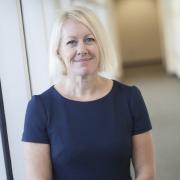
Speaker Information
Kim Grove is a professional engineer, whose 20+ years of experience has spanned the spectrum of civil engineering including stormwater management, land development design, environmental site assessment and remediation, geotechnical engineering and forensic analysis, construction management, and materials testing. A graduate of the Florida Institute of Technology, Ms. Grove spent most of her career as a private engineering consultant working throughout the Southeast and mid-Atlantic region, until she joined Baltimore City Department of Public Works in December 2010. Ms. Grove currently serves as the Chief for the Office of Compliance and Laboratories, which is committed to enhancing environmental regulatory compliance for the Department through collaboration, management program improvements, and regulatory enforcement. Starting in 2016, Ms. Grove served on the technical advisory committee for the National Green Infrastructure Certification Program (NGICP), a collaborative effort led by WEF to establish national certification standards for green infrastructure construction, inspection, and maintenance workers. She also works with the Urban Waters Federal Partnership Actionable Science Committee and the Baltimore Ecosystem Study to integrate scientific research with policy decisions for the Department.

Abstract
Navigating relationships between universities and cities can be a complex endeavor. Rick Stafford from Carnegie Mellon's Heinz School of Public Policy and Grant Ervin from the City of Pittsburgh will discuss how the City of Pittsburgh's partnership with CMU's Metro21 program and the MetroLab Network are helping to foster a formative research and development partnership that is helping to tackle tough local policy issues like storm-water management. Participants will learn more about the partnership architecture, research collaboration and collective problem solving underway in Pittsburgh.
Speaker Information
Grant Ervin serves as the Chief Resilience Officer for the City of Pittsburgh were he oversees the integration of sustainability and resilience into City services, programs and policy. Prior to joining the City of Pittsburgh, Grant served as the Regional Director for 10,000 Friends of Pennsylvania, a statewide smart growth and sustainable development policy organization; and as Public Policy Manager for Pittsburgh Community Reinvestment Group (PCRG).
Grant brings deep experience, intersecting the worlds of environmental, community & economic development and infrastructure policy to create innovative and sustainable solutions for local governments, community development organizations and state agencies. Grant has helped lead the development of a variety of innovative programs including Pittsburgh’s inclusion in the Rockefeller Foundation’s 100 Resilient Cities Initiative; the creation of the Uptown Eco-Innovation District, District Energy Pittsburgh, Pittsburgh and Neighborhood Community Information System and the Pennsylvania Community Transportation Initiative.
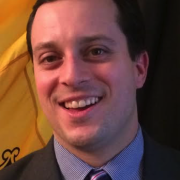
Speaker Information
Anna J. Siefken, LEED AP BD+C, has extensive experience fostering internationally-recognized brands in partnership with corporations, non-profits and the government sector. She is the Associate Director for Innovation & Strategic Partnerships at the Wilton E. Scott Institute for Energy Innovation, Carnegie Mellon University. Previously, Siefken served simultaneously as VP of Strategic Engagement and the Pittsburgh 2030 District Director at Green Building Alliance (GBA), where she led the largest 2030 District in North America in Downtown Pittsburgh, the Northside, and nearby Oakland. Prior to joining GBA, Siefken was Principal Consultant at ICF International outside Washington, DC, where she designed programs and recruited strategic partners to participate in the Energy Star products and home improvement programs on behalf of EPA and DOE. Siefken was previously employed at The Home Depot headquarters in Atlanta, GA, where she held positions in product purchasing, advertising and marketing, consumer education, e-commerce, community affairs and environmental programming. She developed and implemented numerous national programs including The Home Depot's first company-wide energy efficiency initiative, which garnered significant sales increases in all environmental product categories and served as a pilot for the organization’s "Eco Options" program. Siefken is a graduate of Duke University.
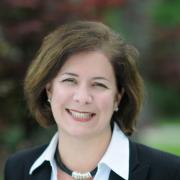
Speaker Information
Gaboury Benoit is the Grinstein Professor of Environmental Chemistry at Yale’s School of Forestry and Environmental Studies, where he has served as the Associate Dean for Research and Director of Doctoral Studies. He has a joint appointment in Yale’s Environmental Engineering program. He founded Yale’s Center for Coastal and Watershed Systems in 1992 and acted as its faculty director. He is also faculty director of Yale’s Hixon Center for Urban Ecology.
Dr. Benoit received his bachelor’s degree from Yale’s Department of Geology and Geophysics where he studied environmental chemistry. After working for three years in an independent environmental consulting firm, he earned a master’s in Water Resources Engineering from MIT (1985) and a PhD in environmental chemistry from the M.I.T.-Woods Hole joint program (1988).
Gabe is a nationally recognized expert on environmental chemistry and the impacts of land development on water. Recent research includes urban environmental issues and watershed based studies of nonpoint source pollution. Among his many publications, he co-authored the book New Strategies for America's Watersheds: Integrating Ecological, Economic, and Social Factors that was published by National Academy Press in 1998. Another important recent publication is the book Land and Natural Development (L.A.N.D.) Code, co-authored with Diana Balmori of Yale’s Architecture School, and which is a set of guidelines for sustainable land development.

Abstract
Identifying mutually beneficial objectives for researchers and practitioners engaged in climate adaptation efforts can often be a challenge. Drawing on the experience of researchers and practitioners involved in climate adaptation projects focused on cities in the Great Lakes region, this presentation provides an overview of the relationship between the University of Michigan’s Great Lakes Integrated Sciences and Assessments (GLISA) and the City of Ann Arbor, and the iterative engagement process for enhancing the City’s climate resiliency while strengthening the University’s research and outreach efforts. Specific projects and lessons learned will be discussed, as well as new network formed in part as a result of this collaboration, the Great Lakes Climate Adaptation Network (GLCAN).
Speaker Information
Dr. Jorns is the Program Manager for the Great Lakes Integrated Sciences and Assessments (GLISA). In her role, she provides day-to-day leadership and administration of GLISA operations to ensure the goals of the 2015-2020 program are being achieved. Dr. Jorns has a PhD in Geosciences from Princeton University, where she studied the response of marine phytoplankton to increasing carbon dioxide concentrations. She also received a science, technology, and environmental policy certificate from Princeton University’s Woodrow Wilson School of Public and International Affairs, and a B.S. in Biochemistry from the University of Illinois at Urbana-Champaign.

Speaker Information
Matthew Naud is the Environmental Coordinator for the City of Ann Arbor. He staffs the City’s Environmental Commission and makes recommendations to the City Administrator, Mayor, and City Council on a broad range of sustainability issues. Mr. Naud is a member of the Urban Sustainability Director’s Network where he serves on the Planning Committee, Innovation Committee, and Small Cities User Group. The Innovation Committee develops a strategic plan for annual funding for collaborative grants among cities that create and disseminate innovation across US and Canadian member cities. Mr. Naud is a member of the USEPA Board of Scientific Counselors – Sustainable and Healthy Communities Subcommittee. The Board of Scientific Counselors (BOSC) provides advice, information, and recommendations to EPA's Office of Research and Development (ORD) on technical and management issues of its research programs. He holds Masters degrees from the University of Michigan in Biology and Public Policy and an undergraduate degree from Boston College.
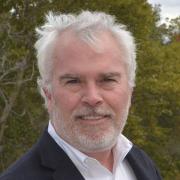
Abstract
Community Resiliency: CU Boulder, in collaboration with the city of Boulder, the Department of Energy and the National Renewable Energy Lab is developing an integrated, smart and resilient microgrid on our East Campus. This partnership will create a living sustainability laboratory that will promote efficiency, integration of smart technologies, clean energy, and protect critical infrastructure to better serve our community.
Speaker Information
David Kang is the Vice Chancellor for Infrastructure and Safety and the Chief Facilities Officer at the University of Colorado Boulder responsible for management of over 12 million SF of facilities to support education and research. He is also responsible for overall campus sustainability and resiliency; Public Safety and Environmental, Health, and Safety programs. Prior to CU Boulder, David was the Director of Project Management at the White House Military Office where he led several multi-million dollar, highly technical, classified facility programs/projects in support of the Continuity of the Presidency, White House Operations, Camp David, and other White House support facilities. He also served as the Director for Shore Energy for the Department of the Navy where he championed a culture of sustainability and led department-wide efforts to increase energy efficiency, increase use of renewable energy and integrate smart energy technologies on Naval installations throughout the world.
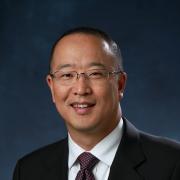
Speaker Information
Jonathan Koehn is the Regional Sustainability Coordinator for the City of Boulder, where he oversees the city’s sustainability agenda, specifically in relation to climate action and waste reduction, but more broadly across the complete spectrum of the city’s sustainability goals. Most recently, Jonathan was the Environmental Affairs Manager for the city. Jonathan came to Boulder with more than 15 years experience working with state, regional and local governments and its constituencies domestically and internationally to develop strategic and tactical solutions to energy, economic and climate challenges. Since 2009, he has been focused on the various aspects of Boulders energy efforts, primarily, the city’s municipalization exploration project.
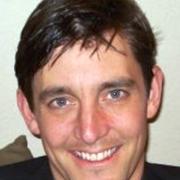
Abstract
The City of Vancouver (City) and the University of British Columbia (UBC) have been working together for over 10 years on various projects and programs under an MOU. They have completed many projects under this program including district energy, transportation and organics recycling. However, their most exciting programs are not about what they work on, but how they work together. They have two programs designed to bring UBC students right into City Hall and partner with City staff on priorities associated with the Greenest City Action Plan and the Healthy City Strategy. Victoria Smith from UBC and Brad Badelt from the City of Vancouver will share some details about their Greenest City Scholar and CityStudio programs and will touch on why they feel they have been so successful, what some of the challenges have been and how other jurisdictions can leverage the framework for their own collaborations.
Speaker Information
Victoria Smith is the Director of Communications and Community Engagement with the UBC Sustainability Initiative (USI) at the University of British Columbia. The mandate of USI is to support, enable and facilitate the integration of academic and operational sustainability efforts across campus. Working with faculty, staff, students and community members as well as key external partners, USI helps advance UBC’s internationally renowned leadership in sustainability.
Prior to taking on this role, Victoria was the Manager of Sustainable Communities at BC Hydro, where her group focused on delivering value for local governments and communities across British Columbia through community energy planning, conservation programs and energy innovation projects.
Victoria has contributed to a number of organizations and boards including; the International Centre for Sustainable Cities, the City of Vancouver Greenest City 2020 Climate Leadership External Advisory Committee, QUEST National Advisory Council, the Community Energy Association, UNICEF and the Centre for Leadership Initiatives. Victoria has over 20 years of public and private sector experience in energy conservation and urban sustainability, and holds a Master’s of Environmental Education and Communication degree from Royal Roads University.
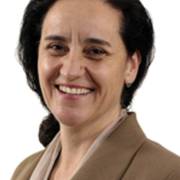
Speaker Information
Brad is the assistant director of sustainability with the City of Vancouver. He leads the City’s climate adaptation work and is closely involved in partnerships with local universities, including the Greenest City Scholar program and CityStudio. Brad recently co-instructed a course in UBC’s Education for Sustainability and has done several guest lectures in other faculties. He has a Master’s degree in water resources engineering and has worked in local government for more than 15 years, primarily in the areas of water management and sustainability.

Abstract
The City of South Bend has held a federal allowance to generate hydropower from the City-owned dam since 1984. After several feasibility studies, the City was still facing legal and logistical challenges and a massive price tag. The University of Notre Dame expressed interest in the project, redoubling renewable energy efforts in response to Pope Francis’ 2015 encyclical calling on Catholics to protect the environment. The University of Notre Dame and the City of South Bend Board have reached an agreement on a 50-year lease that gives the University rights to construct and operate a hydroelectric generation facility on the dam. In conjunction with the lease, Notre Dame will pay the city $1 million for restoration of Seitz Park, which is adjacent to the dam, as well as for ongoing maintenance of the dam through the duration of the lease. From the City’s perspective, this partnership not only allowed a long-underutilized asset to be developed into a clean energy producer but also supported the reimagining of a community focal point, the much-loved Seitz Park. Notre Dame is happy to have an opportunity to continue its partnership with the City of South Bend, while expanding its renewable energy efforts and meeting another seven percent of its electricity demands. Therese Dorau will discuss the problems that were overcome by this partnership, and the expected results.
Speaker Information
Therese Dorau is the Director of Sustainability for the City of South Bend, Indiana. A native Hoosier, she returned to launch South Bend’s Office of Sustainability in 2014. The Office focuses on municipal energy efficiency, renewable energy, and waste reduction. The Office also educates both City staff and the public on incorporating triple-bottom-line thinking into both major projects and day-to-day life. Ms. Dorau comes to South Bend from Washington DC, where she managed consulting projects related to energy efficiency, renewable energy, and environmentally-friendly practices for corporate, federal, and local government clients. She has worked extensively with cities and counties to develop sustainability and energy programs. She has also served as a legislative assistant in the Iowa General Assembly and as a college chemistry instructor. Therese has a B.S. in Chemistry from Xavier University and an M.S. in Sustainable Systems from the University of Michigan’s School of Natural Resources and Environment. In her free time she takes full advantage of South Bend’s wonderful local beer, food, music, and outdoor recreation offerings.
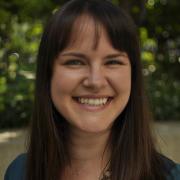
Speaker Information
Ginger Chapman is the Director of the Office of Sustainability providing leadership and management to ensure the integration of sustainable principles and practices across the university. Prior to her current role she served as the Director of Facilities Sustainable Initiatives supporting units within Facilities to achieve goals set out in the first Yale Sustainability Strategic Plan (2010-2013).
Ginger has been a key participant in many of Yale’s sustainability initiatives over the years. As Director of Facilities Planning & Construction at Yale School of Medicine her work to “green” laboratory renovations positioned her to lead the committee that created Yale’s “Sustainable Design Requirements” which were adopted in 2009 and continue to guide Yale’s sustainable design and construction practices.
She was a member of Yale’s Advisory Committee for Environmental Management, the committee that spurred Yale’s university-wide focus on sustainability and led to the creation of the Office of Sustainability in 2005. Ginger is a registered architect with a Masters of Architecture degree from Yale School of Architecture.
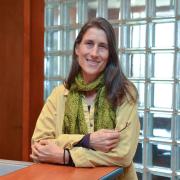
Speaker Information
Murali Chandashekaran is the Vice Provost (International), at the University of British Columbia (UBC), Canada, and the Fred H. Siller Professor of Behavioural Science at UBC’s Sauder School of Business. As Vice-Provost (International), Murali’s service focuses on advancing UBC’s international strategic priorities, shepherding the university’s diverse and complex international activities on two campuses that serve as home to over 60,000 students and over 15,000 faculty and staff. He is also Visiting Professor of Business Administration at the Yale School of Management, and Senior Research Fellow in the Global Network for Advanced Management (GNAM; http://advancedmanagement.net, a network of 29 leading international business schools from diverse regions, countries, cultures, and economies in different phases of development, seeking to leverage interconnectedness of global institutions to develop global leaders for coming decades). Murali serves on the UBC Taskforce for the creation of a School of Public Policy and Global Affairs, and is an active member of the steering group of the Highly Integrative Basic and Responsive Research (HIBAR) Initiative, which seeks to, in collaboration with other universities, implement programs and strategies to catalyze visionary use-inspired collaborative research. Believing deeply in the idea that universities can play a central role in building a more just and prosperous world, he seeks to develop and nurture global collaborative networks with academic institutions, corporates, communities, cities and countries, break down silos, and bring diverse stakeholders together to help increase the societal impact of universities. Murali is widely published in leading academic business journals in the areas of metrics (specifying models to capture various market phenomena) and valuation (estimating the impact of assets and investments on market-based outcomes). His current research is in the area of resilience valuation and asset management – specifying measures, monitoring systems, and estimation models to derive metrics that capture the short-term and long-term impact of assets and investments on resilience of neighborhoods, cities and regions. He lives in Vancouver with his wife and three daughters, and has taken up competitive curling as a new hobby.
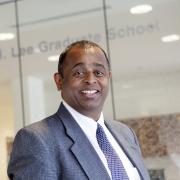
Building on the energy and ideas generated in the conference panels and discussions throughout the day, there will be time to chat and network with fellow delegates and speakers to talk about what could happen next! All event attendees and their colleagues welcome.

